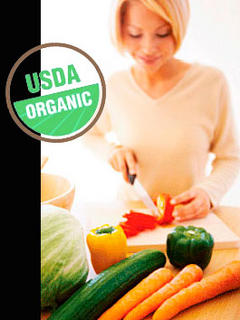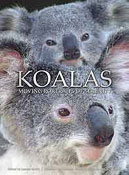Certified organic
 why it costs more
why it costs moreIf you've been paying attention to the food circulars lately you already know that grocers are jumping on the band wagon these days in a concerted effort to get your attention fixed on organic products. Retailers like Giant Food, Kash n' Karry, Publix, Albertsons even embattled Winn Dixie have recently began touting 'organic' and putting in place special selections of organic produce, canned goods, pantry, dairy and meat items all proclaimed USDA Organic Certified. But at what cost and how can you, the consumer, be certain that the benefits justify the increased cost for you and your family.
Organic labeling guarantees that certain conventions are maintained in the production and processing of consumable agricultural goods, conventions that specify: restrictions for beef, pork and poultry producers that prohibit the use of antibiotics and allow only organically grown feed, composting, and organic fertilizers. Crop rotation methods that enhance the soil but reduce in the short term a farmer's cash crop production are also mandated by the seal. These restrictions add to the cost up the chain beginning with the producer - the farm - and continue on to the wholesale and ultimately the retail level where they are passed directly to the consumer.
We checked 3 national chain grocers this week and found these relative* costs for 12 items labeled organic versus non organic. The value averaged totals are as follows.
| organic | non organic | |
| 1 pound fresh shrimp** | 8.99 | 9.99 |
| 1 pound vine ripe tomatos | 2.32 | 2.19 |
| 1 dozen eggs | 2.99 | 1.79 |
| 1 24 ounce loaf whole wheat bread | 2.99 | 2.09 |
| 1 27 ounce multigrain cereal | 3.29 | 2.79 |
| 1 64 ounce apple juice | 2.29 | 1.79 |
| 1 5 ounce bag salad mixed greens | 2.99 | 2.39 |
| 14.5 ounce can soup various varieties | 2.19 | 1.89 |
| 16.3 ounce bottle pasta sauce | 2.39 | 2.69 |
| 1 14 ounce long grain brown rice | 1.19 | 1.59 |
| 1 15.25 ounce can corn | .99 | .78 |
| 1 5 pound bag bread flour | 2.39 | 2.89 |
| total | 35.01 | 32.88 |
The difference amounts to roughly a 6% increase to the cost of organic foods over non-organic.
*note - we disregarded sale pricing in both categories at all 3 chains
**note - organic sea food, meat, fowl and dairy products cannot be verified nor compared to soy substitute products in the same category because the source of protein in each, although of similar quality, is based on entirely different organic standards.



12:16 PM









<< Home